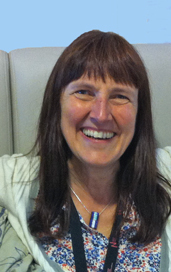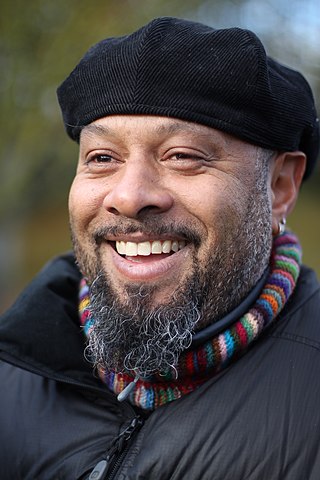
A moral panic is a widespread feeling of fear, often an irrational one, that some evil person or thing threatens the values, interests, or well-being of a community or society. It is "the process of arousing social concern over an issue", usually perpetuated by moral entrepreneurs and mass media coverage, and exacerbated by politicians and lawmakers. Moral panic can give rise to new laws aimed at controlling the community.

Stanley Cohen was a sociologist and criminologist, Professor of Sociology at the London School of Economics, known for breaking academic ground on "emotional management", including the mismanagement of emotions in the form of sentimentality, overreaction, and emotional denial. He had a lifelong concern with human rights violations, first growing up in South Africa, later studying imprisonment in England and finally in Palestine. He founded the Centre for the Study of Human Rights at the London School of Economics.

Saskia Sassen is a Dutch-American sociologist noted for her analyses of globalization and international human migration. She is a professor of sociology at Columbia University in New York City, and the London School of Economics. The term global city was coined and popularized by Sassen in her 1991 work, The Global City: New York, London, Tokyo.
Jeffery Richard (Jeff) Hearn is a British sociologist, and Research Professor at the University of Huddersfield, and Professor at the Hanken School of Economics.

The sociology of law, legal sociology, or law and society is often described as a sub-discipline of sociology or an interdisciplinary approach within legal studies. Some see sociology of law as belonging "necessarily" to the field of sociology, but others tend to consider it a field of research caught up between the disciplines of law and sociology. Still others regard it as neither a subdiscipline of sociology nor a branch of legal studies but as a field of research on its own right within the broader social science tradition. Accordingly, it may be described without reference to mainstream sociology as "the systematic, theoretically grounded, empirical study of law as a set of social practices or as an aspect or field of social experience". It has been seen as treating law and justice as fundamental institutions of the basic structure of society mediating "between political and economic interests, between culture and the normative order of society, establishing and maintaining interdependence, and constituting themselves as sources of consensus, coercion and social control".

David S. Wall FRSA FAcSS is Professor of Criminology at the Centre for Criminal Justice Studies, School of Law, University of Leeds, England, where he researches and teaches cybercrime, policing, organised and transnational crime and intellectual property crime. He rejoined the University of Leeds in August 2015 from Durham University, where he was Professor of Criminology. Between 2011 and 2014 he was Head of the School of Applied Social Sciences (SASS). Before moving to Durham in 2010 he was Professor of Criminal Justice and Information Society at the University of Leeds, where he also held the position of Head of the School of Law (2005–2007) and Director of the Centre for Criminal Justice Studies (2000–2005). He is a Fellow of the Alan Turing Institute.
Jock Young was a British sociologist and an influential criminologist.
Lawrence W. Sherman is an American experimental criminologist and police educator who is the founder of evidence-based policing.

Cultural criminology is a subfield in the study of crime that focuses on the ways in which the "dynamics of meaning underpin every process in criminal justice, including the definition of crime itself." In other words, cultural criminology seeks to understand crime through the context of culture and cultural processes. Rather than representing a conclusive paradigm per se, this particular form of criminological analysis interweaves a broad range of perspectives that share a sensitivity to “image, meaning, and representation” to evaluate the convergence of cultural and criminal processes.
Carol Christine Smart is a feminist sociologist and academic at the University of Manchester. She has also conducted research about divorce and children of divorced couples.
Vincenzo Ruggiero is Professor of Sociology at Middlesex University, London. He is also director of the Centre for Social and Criminological Research at Middlesex University.

Criminology is the interdisciplinary study of crime and deviant behaviour. Criminology is a multidisciplinary field in both the behavioural and social sciences, which draws primarily upon the research of sociologists, political scientists, economists, legal sociologists, psychologists, philosophers, psychiatrists, social workers, biologists, social anthropologists, scholars of law and jurisprudence, as well as the processes that define administration of justice and the criminal justice system.

Margunn Bjørnholt is a Norwegian sociologist and economist. She is a research professor at the Norwegian Centre for Violence and Traumatic Stress Studies (NKVTS) and a professor of sociology at the University of Bergen. Her research has focused on financial institutions, management and working life and later on gender equality, migration and violence. She has also worked as a consultant, a civil servant, served as an expert to the European Commission and been president of the Norwegian Association for Women's Rights.
Margaret Chilla Bulbeck was the emeritus professor of women's studies at Adelaide University from 1997 until 2008, and has published widely on issues of gender and difference.

Benjamin Bowling is Professor of Criminology & Criminal Justice at King's College London, an author and an honorary psychotherapist. He is a recipient of the Radzinowicz Memorial Prize awarded for the best article in the British Journal of Criminology in 1999. Bowling was elected Fellow of the British Academy in 2022.
Penny Green is an Australian criminologist. She has been a Professor of Law and Globalisation and Head of the Department of Law at Queen Mary University of London since September 2014.

Gregg Barak is an American criminologist, academic, and author. He is an emeritus professor of criminology and criminal justice at Eastern Michigan University, a former visiting distinguished professor in the College of Justice & Safety at Eastern Kentucky University, and a 2017 Fulbright Scholar in residence at the School of Law, Pontificia Universidade Catholica, Porto Alegre, Brazil. He is most known for his research in the fields of criminology and criminal justice.
Betsy Stanko is an American criminologist academic and researcher living and working in the UK. Stanko was awarded an Order of the British Empire (OBE) in the 2014 Queens Birthday Honours for her services to policing.
Roderic Broadhurst is a criminal justice practitioner, academic, and author. He is an Emeritus Professor at the School of Regulation and Global Governance (RegNet) and Fellow of the Research School of Asian and the Pacific at the Australian National University (ANU).









